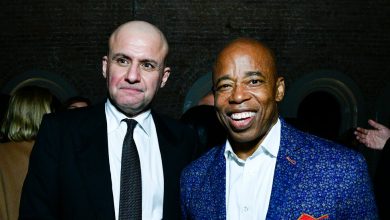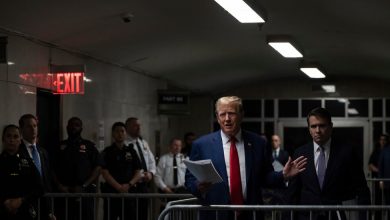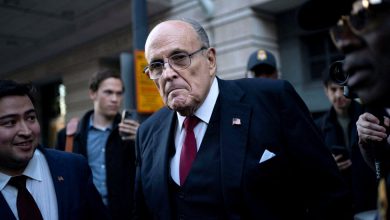Michael D. Cohen’s Lawyer Cited Cases That May Not Exist, Judge Says

Michael D. Cohen, the onetime fixer for former President Donald J. Trump who went to prison after pleading guilty to campaign finance violations in 2018, was trying to persuade a judge to end court supervision of his case now that he has been released.
There was just one hitch: Mr. Cohen’s lawyer, David M. Schwartz, appeared to have cited three bogus rulings in making his argument in a court filing last month.
“As far as the court can tell,” a Manhattan federal judge, Jesse M. Furman, wrote in an order on Tuesday, “none of these cases exist.”
The episode echoed a case in June when another federal judge, P. Kevin Castel, imposed a $5,000 fine on two lawyers who had filed a legal brief full of made-up cases and citations, all generated by the artificial intelligence program ChatGPT.
On Tuesday, Judge Furman ordered Mr. Schwartz to provide the court with copies of the three decisions he had cited in the filing. If Mr. Schwartz could not do so within a week, Judge Furman said, the lawyer would have to produce a sworn declaration and a thorough explanation of “how the motion came to cite cases that do not exist and what role, if any, Mr. Cohen played in drafting or reviewing the motion before it was filed.”
Mr. Schwartz did not immediately respond to an emailed request for comment. E. Danya Perry, a new lawyer representing Mr. Cohen in his request to end his supervised release, said she had joined the case after Mr. Schwartz filed the motion at issue.
“In conducting my own research in support of Mr. Cohen’s motion,” she said, “I was unable to verify the case law that had been submitted by previous counsel in his initial papers. Consistent with my ethical obligation of candor to the court, I advised Judge Furman of this issue.”
Ms. Perry said Mr. Cohen would have no comment.
As cited in Mr. Schwartz’s legal motion, the cases — United States v. Figueroa-Flores, United States v. Ortiz and United States v. Amato — all sounded legitimate. They were affirmed by the U.S. Court of Appeals for the Second Circuit, Mr. Schwartz noted in his motion, offering summaries of each decision.
But Judge Furman, in his order on Tuesday, noted that Figueroa-Flores citation actually referred to a page in the middle of an opinion issued by a different federal appeals court and which, the judge added, “has nothing to do with supervised release.”
The Amato case, Judge Furman wrote, corresponded to a decision of the Board of Veterans Appeals, an administrative tribunal.
And the citation to the Ortiz case, the judge said, appeared “to correspond to nothing at all.”
Judge Furman wrote that he had contacted the clerk of the Second Circuit court, “who found no record of any of the three decisions.”
The judge did not indicate whether he believed the three decisions cited in Mr. Schwartz’s motion were the product of a chatbot, but in making clear he had the power to issue sanctions, he cited the earlier case before Judge Castel which involved ChatGPT.
On Friday, Ms. Perry, Mr. Cohen’s new lawyer in the matter before Judge Furman, wrote to the judge, asking that he grant the early termination of Mr. Cohen’s supervised release, a request that federal prosecutors oppose.
Ms. Perry argued that Mr. Cohen had complied with the conditions of his supervised release and had cooperated with the authorities in numerous investigations, including of Mr. Trump. Last month, Mr. Cohen testified over two days as a witness for New York’s attorney general, Letitia James, in a civil fraud suit her office brought against the former president.
If Judge Furman determines that Mr. Cohen had a role in citing the bogus cases, Mr. Trump’s lawyers, who have attacked Mr. Cohen as a serial liar, are likely to use the episode to try to further undercut his credibility. Mr. Cohen is expected to be the star witness in the Manhattan district attorney’s criminal trial against Mr. Trump, which is scheduled for next year.
Jonah E. Bromwich contributed reporting.




